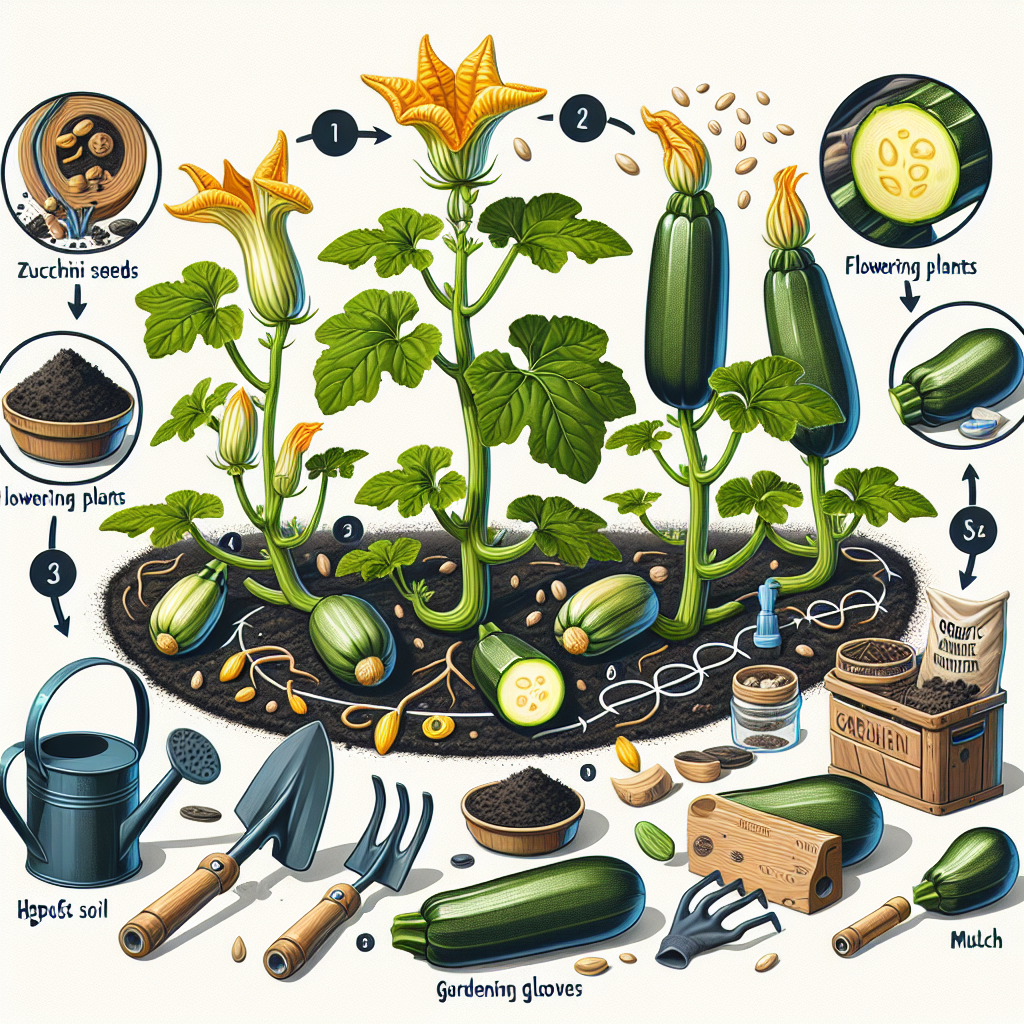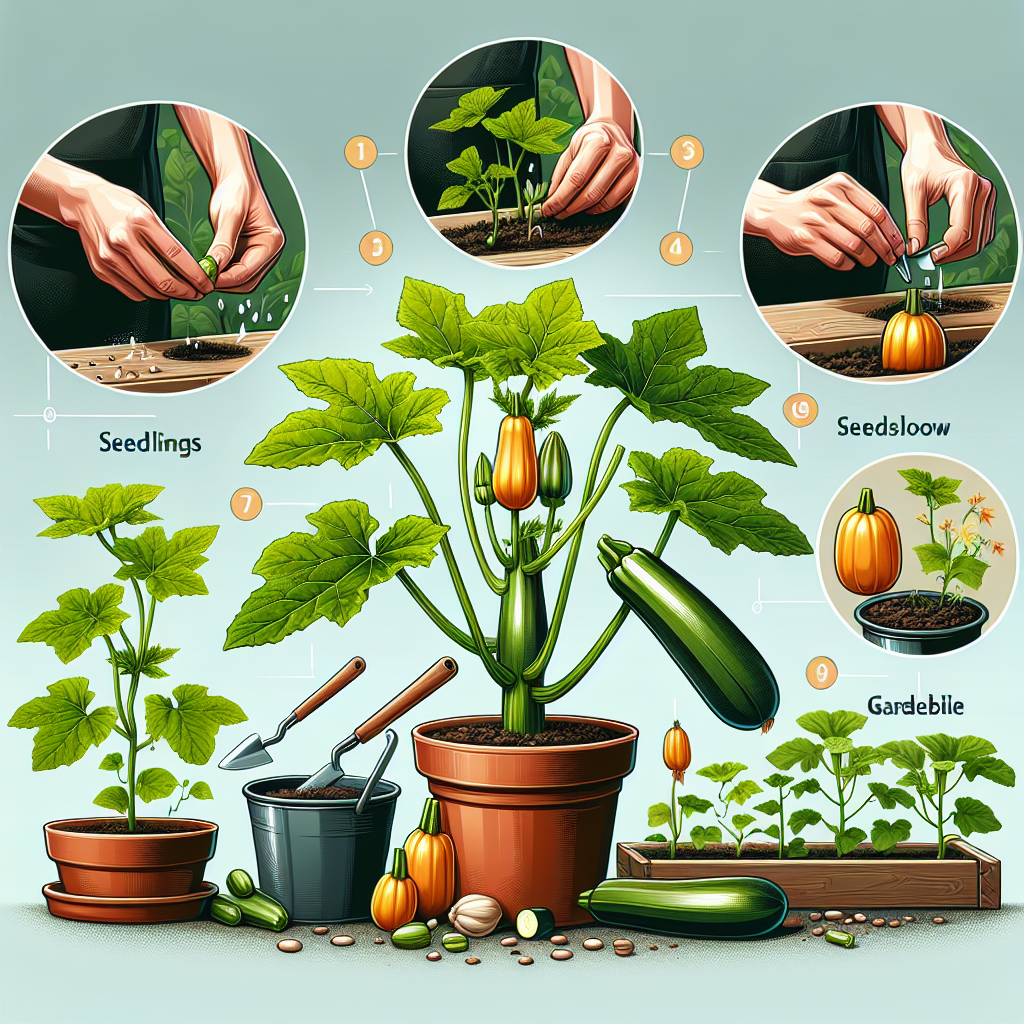Easy Tips for Growing Zucchini in Your Home Garden
Zucchini, also known as courgette, is a versatile and delicious vegetable that can be enjoyed in various dishes. It is relatively easy to grow in a home garden and can provide you with a bountiful harvest throughout the summer season. If you’re new to gardening or looking to expand your vegetable repertoire, here are some easy tips to help you successfully grow zucchini at home.
1. Choose the right variety:
There are several varieties of zucchini available, each with its unique characteristics. Some popular options include Black Beauty, Golden Glory, and Greyzini. Consider the size of the plant and the type of zucchini you prefer when selecting which variety to grow in your garden.
2. Find an ideal location:
Zucchini thrives in full sunlight, so ensure your garden bed or container receives at least six hours of direct sunlight each day. Provide adequate space for the plants to spread as they can grow quite large and take up considerable space.
3. Prepare the soil:
Zucchini prefers well-drained soil rich in organic matter. Prior to planting, amend your garden bed with compost or aged manure to improve soil fertility and drainage capabilities. This will create a nutrient-rich environment for your zucchini plants to thrive.
4. Plant at the right time:
In most regions, zucchini can be directly sown outdoors after all danger of frost has passed and the soil temperature reaches around 60°F (15°C). It is best to wait until late spring or early summer for optimal growing conditions.
5. Sow seeds correctly:
Plant zucchini seeds about one inch deep into the prepared soil, spaced around 24-36 inches apart depending on the variety’s bushiness. Alternatively, you may start seeds indoors 3-4 weeks before transplanting them into your garden bed if you have a shorter growing season.
6. Water regularly:
Zucchini plants require consistent watering, especially during dry spells. Keep the soil evenly moist but not waterlogged to prevent rot and diseases. Providing a steady supply of water will result in healthier plants and larger yields.

7. Mulch and weed control:
Applying a layer of organic mulch around your zucchini plants helps retain soil moisture, suppresses weed growth, and regulates soil temperature. Mulching also prevents the zucchini fruits from coming into direct contact with the ground, reducing the risk of rot.
8. Fertilize appropriately:
Zucchini is a heavy feeder and benefits from regular fertilization. Incorporate a balanced organic fertilizer or compost into the soil before planting, and consider side-dressing with compost or aged manure once the plants start producing fruits.
9. Support your plants:
Though zucchini plants are generally bushy in nature, some varieties may benefit from support to keep them off the ground. Use stakes or trellises, ensuring they’re strong enough to withstand the weight of growing zucchinis.
10. Harvest at the right time:
Zucchinis grow rapidly, often doubling in size within days. Harvest them when they reach 6-8 inches in length for optimal taste and tenderness. Leaving them on the vine for too long can result in oversized fruits that are tough and less flavorful.
11. Extend the harvest season:
To enjoy a more extended zucchini harvest, pick smaller-sized fruits regularly as this encourages new fruit production on the plant. Regular harvesting also prevents uncontrolled growth that could lead to plant exhaustion.
12. Pest and disease management:
Like any garden plant, zucchinis can face pest and disease issues. To prevent common problems such as powdery mildew or cucumber beetles, use organic pest control methods like neem oil spray or handpicking pests off the plants regularly.
By following these easy tips, you’ll be well on your way to growing healthy and abundant zucchinis in your home garden. Enjoy the satisfaction of harvesting your own fresh produce and indulge in the versatile culinary possibilities that this summer squash offers. Happy gardening!













